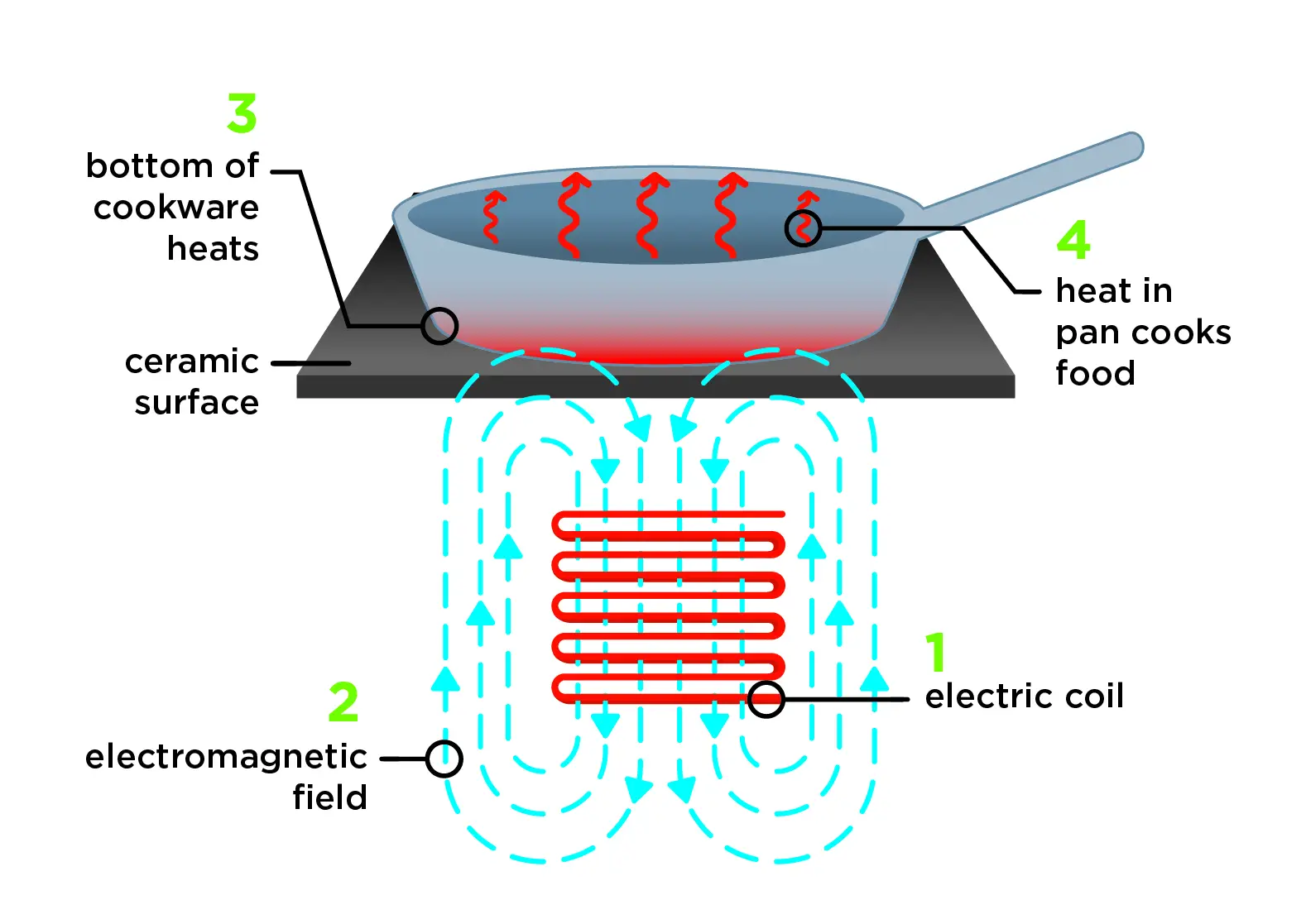How does an induction cooker work?


An induction cooker, also known as an induction cooktop or induction stove, is a modern cooking technology that has gained popularity for its energy-efficient, portable, and safe features. But how does an induction cooker work? In this article, we will explore the inner workings of an induction cooker and understand why it is a preferred choice for many households.
How does an induction cooker work?
An induction cooker utilizes an electromagnetic field to heat the cooking vessel directly, rather than relying on traditional methods like gas or electric heating elements. The key components of an induction cooker include:
1. Induction coil: The induction coil is a copper coil that is located beneath the ceramic surface of the cooker. When an electric current passes through this coil, it generates a high-frequency alternating magnetic field.
2. Cooking vessel: To use an induction cooker, you need to have a cooking vessel made of ferromagnetic material, such as cast iron or stainless steel. These materials have magnetic properties that allow them to interact with the magnetic field generated by the induction coil.
3. Control panel: The control panel of an induction cooker allows you to adjust the temperature and cooking settings according to your requirements.
Working principle:
When you place a ferromagnetic cooking vessel on the ceramic surface of an induction cooker and turn it on, the induction coil beneath the surface generates a rapidly changing magnetic field. This magnetic field induces an electric current in the cooking vessel due to electromagnetic induction.
The electric current flowing through the cooking vessel creates resistance, which in turn generates heat. This heat is then transferred to the food or liquid inside the vessel, resulting in cooking or boiling.
Advantages of induction cookers:
Induction cookers offer several advantages over traditional cooking methods. Let’s take a look at some of the key benefits:
1. Energy-efficient: Induction cookers are highly energy-efficient as they directly heat the cooking vessel, minimizing heat loss. They can transfer up to 90% of the energy to the food, compared to gas or electric cooktops, which waste a significant amount of energy.
2. Portable: Induction cookers are lightweight and portable, making them ideal for small kitchens, camping trips, or as an additional cooking option. They can be easily moved and stored when not in use.
3. Safe: One of the major advantages of induction cookers is their safety features. Since the heat is generated directly in the cooking vessel, the ceramic surface of the cooker remains cool to touch, reducing the risk of burns. Additionally, induction cookers have built-in safety features like automatic shut-off and child lock.
4. Precise temperature control: Induction cookers offer precise temperature control, allowing you to adjust the heat with great accuracy. This feature is particularly useful for delicate cooking techniques that require precise temperature control, such as simmering or melting chocolate.
5. Faster cooking times: Induction cookers heat up quickly, reducing the cooking time significantly. The rapid and efficient heat transfer ensures that the food is cooked evenly and in less time compared to traditional cooking methods.
6. Easy to clean: The smooth ceramic surface of an induction cooker is easy to clean. Since the surface doesn’t get hot, any spills or splatters can be wiped off without the risk of them getting burnt or sticking to the surface.
In conclusion, an induction cooker works by utilizing an electromagnetic field to heat the cooking vessel directly. This cooking technology offers numerous advantages, including energy-efficiency, portability, safety, precise temperature control, faster cooking times, and easy cleaning. With its innovative design and efficient performance, an induction cooker is a valuable addition to any modern kitchen.
Recent Posts
How do I create an engaging and informative online quiz or assessment?
Creating an engaging and informative online quiz or assessment can be a powerful tool for… Read More
What are the most effective methods for managing and reducing work-related stress in the hospitality industry?
Work-related stress is a common issue in the hospitality industry, where employees often face long… Read More
How can I improve my assertiveness and communication skills in a leadership position?
In a leadership position, assertiveness and effective communication skills are crucial for success. Being able… Read More
What are the key elements of a successful employee recognition and rewards program?
Employee recognition and rewards programs play a crucial role in motivating and engaging employees, as… Read More
How do I effectively manage and respond to customer feedback and reviews?
Customer feedback and online reviews play a crucial role in shaping a company's reputation and… Read More
What are the best strategies for effective time management as a stay-at-home parent?
Effective time management is crucial for stay-at-home parents who juggle multiple responsibilities on a daily… Read More